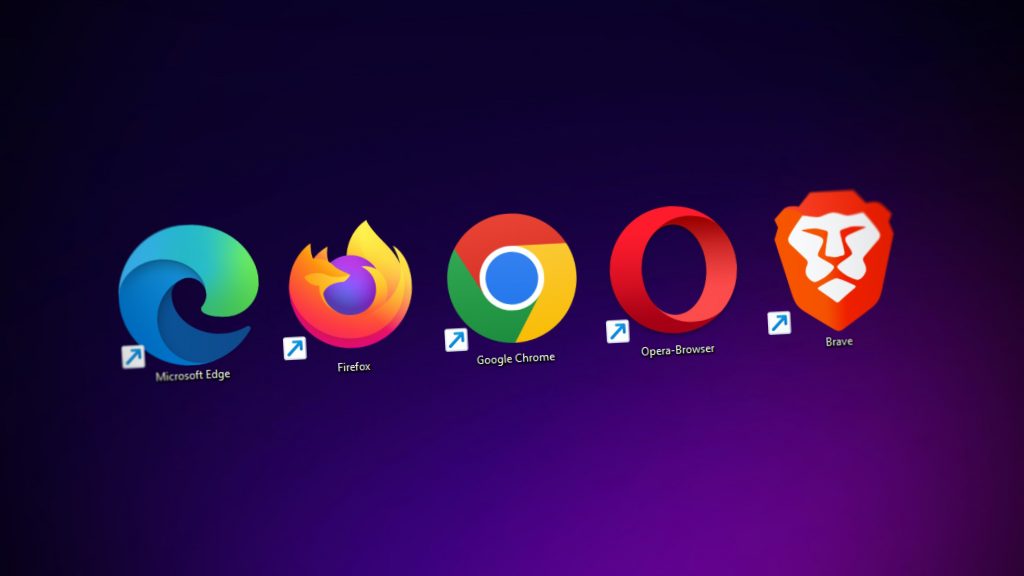4 Web Browser Trends and Predictions for 2022

We do a lot on the internet. And a lot of it through web browsers. We read emails, share files and connect with our co-workers through web applications. But how safe are web browsers? And how are web browsers future trends protecting our businesses, personal information and the future generation?
Before we delve into the browser trends for 2022 and beyond, let’s start with a few basics.
What is a web browser?
As defined by Wikipedia, “a web browser (also referred to as an Internet browser or simply a browser) is application software for accessing the World Wide Web or a local website.” Some popular web browsers include Mozilla Firefox, Google Chrome, Microsoft Edge and Apple Safari.
How does a web browser work?
A web browser is your ‘gateway’ to anywhere on the internet. It takes information from the web and showcases it on your device. It’s important to note that a web browser is not a search engine. Examples of search engines include Google, Yahoo and Binge.
What is the state of web browsers in Australia today?
Browser ‘monoculture’ is very much prevalent today, especially in Australia. So much so, that the Australian Competition and Consumer Commission (ACCC) is concerned about Google and Apple’s browser domination. This is done through Chromium and WebKit – browser engines developed by Google and, respectively, Apple.
So what web browser does Australia use? According to Statcounter, the web browser market share in 2022 on desktop has Chrome being the most used browser with 64% market share, followed by Safari with 14%, Edge 13%, and Mozilla 5%.
Most popular web browsers 2022 based on the Chromium engine:
- Google Chrome
- Microsoft Edge
- Opera
- Vivaldi
- Brave
- Samsung Internet (for Samsung mobile devices only)
Most popular web browsers 2022 based on the WebKit engine:
- Safari
- DuckDuckGo Privacy Browser
Mozilla is the only popular browser that runs on the Quantum browser engine – built specifically for Firefox. If Chromium and WebKit were to be compromised, most of the users would certainly be locked out of the internet.
4 web browser trends and predictions
As we spend more time online, the way we use the internet today will inevitably change and even become unrecognizable in the future. But the trends we’re already seeing and will become mainstream soon, are still quite familiar. So what do we see when we look at the future of browsers? Security, accessibility, user experience and paid services.

1. Paid browsers
Paying for premium browsing services is steadily coming our way. With Google Chrome already blocking ad-blockers in Chrome, the push is toward “pay-for-play” web browsing. Essentially, Chrome has removed a free feature to encourage users to pay for it through its Google Workspace (formerly G Suite) premium services.
Mozilla also has plans for future premium browsing services, but its approach is more user-friendly. It will demand payment for additional services instead of taking away currently-free features.
Additionally, a startup called Mighty already proposed a paid web browser service, at a premium price. The idea? $30/month for a cloud-based web browser. The point of difference? Streaming a remote web browser, means more speed and less battery usage.
2. Voice-powered browsers
There’s already an increase in the use of voice in controlling our browsers. This technology is already used as a native app (voice assistant), it’s already common in Smart TVs, and there are many third-party applications that use it.
Incorporating it into the web browser itself is the next trend, and it’s great for accessibility. Soon, your web browser will be filling in your forms and reading your Internet pages.
How that will change visual browsing remains to be seen.
3. Increased automated privacy
Today security and privacy should be at the forefront of any online system or activity. Data breaches happen all the time and cybercriminals can exploit vulnerabilities and cause harm.
Dodgy links and pop-ups make it easy for hackers to breach your security. But it’s not only a company’s responsibility to have a firewall and antivirus installed and overall great IT security. It has also become the responsibility of everyone creating technology to invest in security measures.
In 1995, Internet Explorer became the first web browser. But its security was so poor that Microsoft decided to fully discontinue it (it was replaced by Microsoft Edge). This move created more room for the important conversations around security and privacy.
Today, most browsers have built-in security and privacy components. For example, Opera has an in-built VPN and adblocker, Safari helps users avoid ad tracking, and Google Chrome launched the enhanced Safe Browsing feature to help prevent phishing attacks.
For a higher level of protection, some web browsers have been specifically created for this purpose, non tracking web browsers with privacy at their core. The best web browsers in 2022 according to Reddit users – and the most privacy friendly ones – are Brave, Tor and LibreWolf.
Which is the safest browser 2022? According to Privacy Australia, the top safest web browsers are:
- Tor
- Epic Privacy
- Brave
- SRWare Iron
4. Faster-loading web browsers
One of the main features for the best user experience (UX) is a fast loading page. And that applies to browsers. The fastest web browser will have leverage over others. Users no longer want to open 10 tabs on their browser just to experience a crash. In fact, “web browser speed comparison 2022” is one of the most searched queries on Google.
Of course, speed depends on your device as well as your OS. Some browsers are better for your OS than others. For example, the fastest Windows 10 web browser in 2022 is Google Chrome, while the fastest Windows 11 web browser in 2022 is Microsoft Edge.
Another interesting example is Opera. While it still supports Flash (phased out because of its notoriously slow page loading speed), it’s still one of the most speedy web browsers.
What is the fastest browser 2022? According to CloudWards, the top 5 speediest websites are:
- Chrome
- Edge
- Opera
- Brave
- Vivaldi
The bottom line
As the landscape will inevitably change, you need to ensure that you choose the right browser for your business that offers the best security, add-ons and experience.
If you have a business and are looking for general managed services, we can help. Contact us today for a free consultation.
